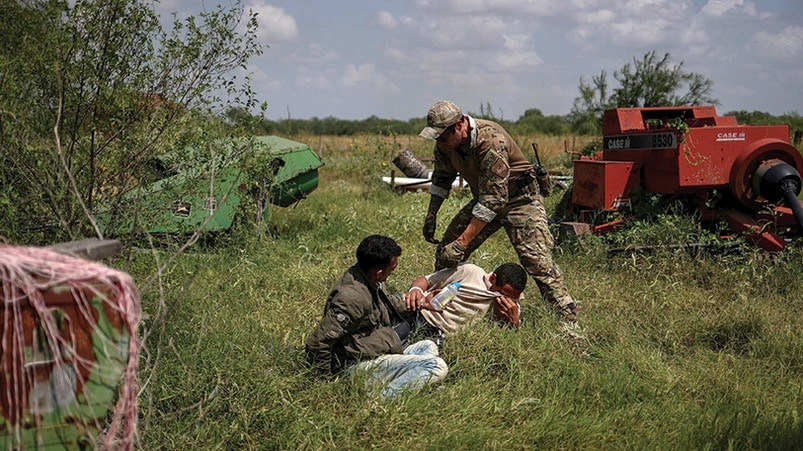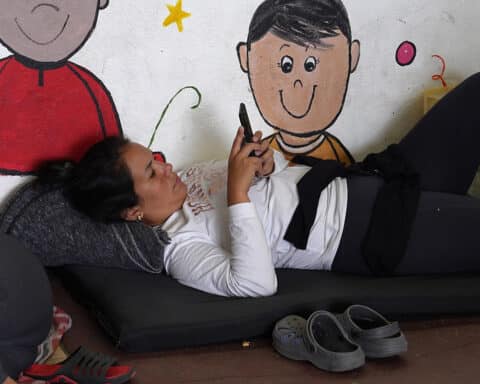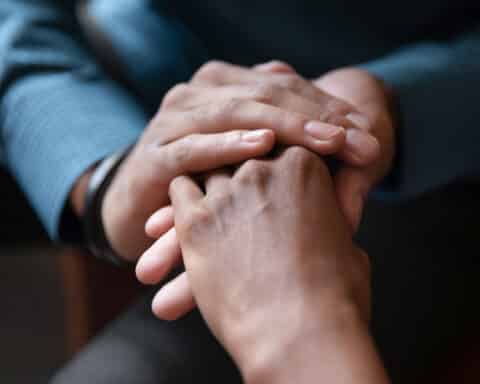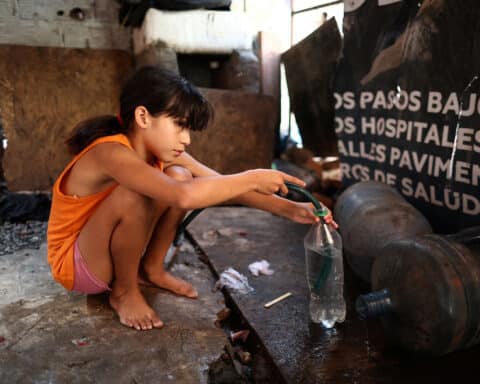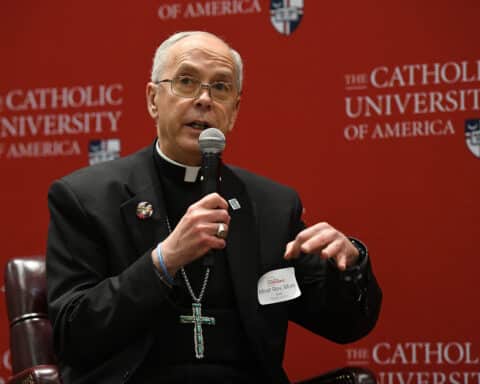He was barely 3 years old.
Wearing black shoes and a deep-blue striped shirt, he pressed his face between the 30-foot-high, solid-iron bar fence that separates the United States from Mexico. Not even his tiny face can squeeze in through the gaps between these bars. His eyes gaze at the people standing on the other side — the land of the brave and the free, where dreams are realized. He sprinkles white rose petals upon the American soil. He is not sure why he is doing so, or why he is even there.
His mother, who stood a few feet away from him, surely did. She was there to express solidarity with thousands of forced immigrants who have sought to cross the border to escape the horrors of violence, poverty and despair. Some have succeeded; others remain detained in prisons, denied legal due process; still others died even before they set eyes on this land.
Transformative trip
A few weeks ago, I traveled from my parish in Dayton, Ohio, and joined more than a dozen Catholic priests on a delegation to the border in El Paso, Texas. We were there to listen, learn and encounter. The trip was one of the most transformative of my life.
As an immigrant from India, I understand what it means to journey from your home, but the stark reality faced by undocumented immigrants, who are caged in detention centers across America, is a moral scandal. In particular, I came to express solidarity with children, like the 3-year-old at the border that day, who have been separated from their families. I was there to grieve an infant who had died in one of the children’s prisons that very week.
The ground we gathered on near the iron fence is hallowed, not only because on that day Bishop Mark Seitz of El Paso sprinkled it with holy water, but because the people who gathered on both sides form the one Body of Christ. Walls and fences cannot destroy the communion of peoples. God is the God of peripheries. This ground is hallowed because God is in the communion that binds God’s people together at the peripheries.
Unjust actions
Standing alongside a 3-year-old sprinkling rose petals, I was saddened, angry and heart-broken. I felt pain not only thinking about past centuries of violence and subjugation.
While previous presidents on both sides of the aisle have failed to comprehensively address the reality of undocumented immigrants, the Trump administration has unleashed Immigration and Customs Enforcement (ICE) to essentially declare war on immigrants. The administration is deporting mothers and fathers who demonstrate the dignity of work, volunteer at church, raise their children and strengthen their communities.
The governments on both sides of the border have ignored the economic and social causes of forced migration in the region. The NAFTA agreement was instrumental in creating the present crisis because it contributed to destabilizing huge agricultural populations in Mexico and Central Latin American nations. In fact, the current reinforced fence was constructed to stop the forced migration of the very population that NAFTA displaced. None of the previous American administrations can wash their hands of the present crisis.
Universal dignity
During my week at the border, I visited two shelters that serve as an oasis for exhausted, hungry and sometimes barely alive asylum seekers and refugees. Annunciation House in El Paso and Casa del Migrantes in Juarez, Mexico, stand taller than the iron fence, giving dignity and refuge to those whom Pope Francis describes as part of a “throwaway culture.”
There is a huge mural on a wall at Casa del Migrantes created by students from a local university that reads: “No human being is illegal!” The mural forces us to contend with the fact that every human person — no matter their legal status — has dignity in the eyes of God. The dehumanization of people is a crime against God, the creator of us all. Every nation has a right to establish laws, but when policies and laws violate human dignity and the common good, those laws are unjust. People of faith and conscience are compelled to moral resistance.
As time came for me to return home to Dayton, I grieved.
What is next for the imprisoned families? I can leave. They cannot. I grieve, but I will also take action and never lose hope. My faith requires that I will do whatever I can to bring justice to our immigrant families and neighbors. Anything less would be turning my back on Jesus himself.
Father Satish Joseph is originally from India and is the pastor of Our Lady of Immaculate Conception and St. Helen parishes in Dayton, Ohio.

